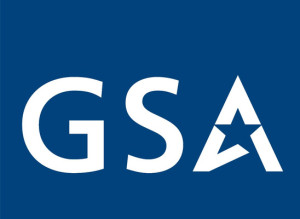
Exclusive
GSA answers vendors concerns about transactional data rule
Kevin Youel Page, the deputy commissioner of the Federal Acquisition Service at GSA, said collecting sales information from contractors will help make the...
The General Services Administration is trying to bring some light to a new acquisition requirement that has industry on edge.
Under the transactional data reporting rule, GSA is accepting volunteers from the contracting community to take part in a one-to-two year pilot to submit sales information back to the agency in exchange for relief of the price reduction clause and the commercial sales disclosures — two requirements vendors have long haexted.
Kevin Youel Page, the deputy commissioner of the Federal Acquisition Service at GSA, said the agency is trying to be more transparent about the Transactional Data Reporting initiative and respond to industry concerns, including more than 60 questions from the Coalition for Government Procurement.

CGP sent a letter to GSA in August asking for more details on everything from the use of the transactional data to data protections to pricing to the pilot administration and operations.
“We pleased they provided answers to our questions and our members will be reviewing them and providing feedback as appropriate,” said Roger Waldron, president of the Coalition for Government Procurement. “We anticipate this being an ongoing dialogue.”
Youel Page said the Transactional Data Reporting pilot programs are part of how the government is moving toward category management to become better buyers through data.
“The government and its industry partners cannot afford to continue to operate as independent units. We must move toward buying as one government activity and we have to avoid the redundancies and inefficiencies that come with acting [as independent buyers],” Youel Page said in an exclusive interview with Federal News Radio. “The transactional data are basic things that anyone would look at anything they bought through an online purchase. It’s what was bought, when, by whom, where it was shipped and for how much. It’s information that will help us understand where the government is buying and to allow the government to act as one to buy it more efficiently and effectively in the future.”
Youel Page emphasized the TDR is not about price. He said he knows vendors are concerned that the point of this initiative is just to drive down prices.
“We are entirely making the government a more intelligent buyer and a more thoughtful buyer, and engaging in good practice and best value,” he said. “We have heard from our customers that they are concerned with the range of prices that are available for similar items on GSA Advantage. If you go into Amazon, there also is a range of prices, it’s just a more narrow range. We have been working through a number of initiatives including this to reduce the range of prices for similar items. It’s not about lowest price regardless. That’s a little bit of fear mongering. We have no interest at all in creating a lowest price regardless environment.”
Judith Zawatsky, the multiple award schedule transformation program manager, said GSA is issuing bilateral modifications to schedule contracts when the vendor’s option comes up for renewal. Zawatsky said new schedule holders are automatically enrolled into the TDR pilot.
She said the pilots cover eight schedule contracts that make up about 50 percent of all spending.
“We started rolling out to transactional data to some of our solicitations. We’ve done that out in Philadelphia in our floor coverings, our audio visual. We’ve done it out in our office in Kansas City that covers our solicitations on maintenance and that would be building maintenance as well as the hardware superstore,” Zawatsky said. “We will progress those through some of the other solicitations. We are trying to do it in a thoughtful, planned way so we have adequate time. We’ve been doing webinars with our industry partners. We want to make sure that all of the effective industry partners have an opportunity attend live webinars, to ask our policy subject matter experts coherent good questions and for us to be able to respond to them.”
Zawatsky said the goal of these meetings and webinars is to make the change easier. She said GSA recognizes the hardest part of this TDR effort is doing something new and different.
But vendors also are concerned about the burden of reporting data back to GSA. Several vendors have said over the last six months that GSA is trying to solve an IT problem by creating a new data call.
The burden issue is one that has come up time and again. GSA initially said reporting transactional data would take only six hours to change systems and then 31 minutes a month on average to do the reporting. But the CGP, among other industry associations, said the time it would take to report this type of data was grossly under-estimated. The CGP said it would take as much as 232 hours to set up systems and 38 hours a month to report the data back to GSA.
GSA relooked at the burden and found that vendors would see a net burden decrease of $29 million because of not having to report price reduction clause or commercial services disclosures data.
“GSA is pursuing this initiative because obtaining transactional data from its industry partners is the most feasible path the government can take to implement smarter buying strategies and promote taxpayer value,” the agency stated in its response to CGP questions. “GSA recognizes the burden that comes with this rule and will continually evaluate ways to minimize the data collection. However, this rule will not lead to higher costs and subsequently higher prices because the changes to the [commercial service practices] and [price reduction clause] requirements provide a net burden reduction. To the contrary, Transactional Data Reporting, as shown by GSA’s experience with collecting and using transactional data, will lead to lower prices.”
But the question of burden surprisingly to some will not be part of the metrics GSA uses to measure the TDR pilots success.
GSA said the pilot’s metrics include, but are not limited to “competitive pricing, increased sales volume, and small business participation, as well as macro use of transactional data by category managers and teams to create smarter buying strategies such as consumption policies.” GSA said it will be “mindful of the burden placed on its stakeholders” and its senior procurement executive, Jeff Koses, “will regularly evaluate progress against these metrics in consultation with the administrator for Federal Procurement Policy and other interested stakeholders to determine whether to expand, limit, or discontinue the program. No expansion of the pilot or action to make Transactional Data Reporting a permanent fixture on the schedules will occur prior to the careful evaluation of at least one year of experience with the pilot.”
Another big issues industry often raises that GSA is trying to explain better is why is industry required to provide the data instead of the government which is doing the buying in the first place.
Several associations have said the government already has the data and GSA just needs to develop a technology to collect it.
But Youel Page said collecting information for thousands of procurement shops isn’t as easy as it seems.
He said GSA looked at all the data it’s already collecting from a variety of sources, including the Federal Procurement Data System, GSA Advantage, e-invoicing systems and other databases, but none met the government’s needs.
“It’s a large system problem. Not just an IT system, but a system of people, process, technology and data. We did look at it from the perspective could we drag it out of contracting writing systems across government? It’s interesting to me, the expense of trying to build another government system to go out and talk to other government systems to collect the information would far exceed the burden we are placing on industry, who by the way, are unquestionable better at developing lean and agile IT systems that meet user needs in fast fashion,” Youel Page said. “We think we are leaning on industry to do what they do best in providing this data. That said, the moment we get an e-invoice system that has a sufficient adoption across government, we will collect once and use many. That is our goal in the federal government, period.”
He added that GSA’s owns systems also don’t collect the transactional data, including GSA Advantage which represents a little more than 1 percent of all sales and e-Buy, which covers a broader percentage of sales, but doesn’t always provide final award data.
“We do not have the data that people seem to think we have,” Youel Page said.
Over the next year or so, Youel Page said GSA will provide a 30-day advanced notification through its Interact site before making any changes to the schedule.
“We believe this a win for our industry partners to be more commercial, faster and have greater access to a happier federal marketplace,” he said. “And it’s a win for us in growing this multiple award schedule product in the midst of an increasingly competitive federal marketplace.”
Copyright © 2025 Federal News Network. All rights reserved. This website is not intended for users located within the European Economic Area.
Jason Miller is executive editor of Federal News Network and directs news coverage on the people, policy and programs of the federal government.
Follow @jmillerWFED
Related Stories

Vendors call GSA’s estimates for data reporting rule ‘irrational’




